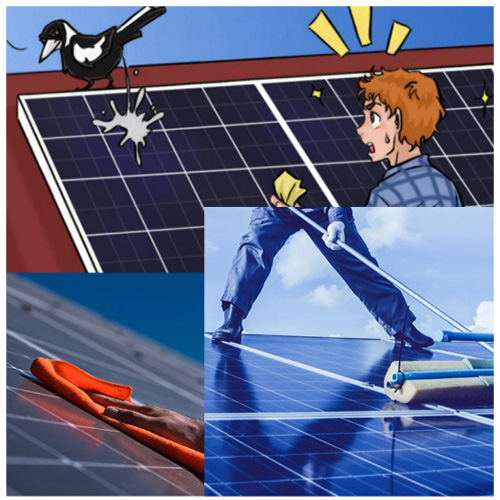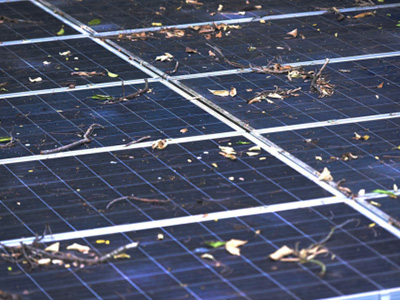Solar panels work by converting sunlight into electricity, and their efficiency can be affected by various factors, including dirt, dust, pollen, bird droppings, leaves, and other debris that may accumulate on the surface of the panels.
Here’s why cleaning your solar panels is important:
- Increased Efficiency: When solar panels are covered with dirt or debris, they can’t effectively capture sunlight. Cleaning them regularly ensures that they can absorb as much sunlight as possible, thereby increasing their energy production efficiency.
- Improved Energy Generation: Cleaner panels generate more electricity, which means you’ll get the most out of your solar energy system. This, in turn, can reduce your reliance on grid electricity and lower your energy bills.
- Extended Lifespan: Regular cleaning can help prolong the lifespan of your solar panels. Dirt and grime can gradually wear down the protective coatings on the panels, leading to long-term damage if left unchecked.
- Maintenance Savings: Cleaning solar panels is a relatively low-cost maintenance activity that can prevent potential issues down the road. Regular cleaning can help avoid costly repairs or replacements.
When cleaning solar panels, keep the following tips in mind:
- Safety First:Ensure your safety when accessing the panels. Use appropriate safety equipment and follow safety guidelines. If your panels are on the roof, consider hiring a professional if it’s too dangerous to access them yourself.
- Timing Matters: Clean your panels during the early morning or late afternoon when they are cooler. Avoid cleaning them in direct sunlight, as water droplets can cause hot spots and potentially damage the panels.
- Gentle Cleaning:Use a soft brush, a sponge, or a squeegee with a mild soap solution and water to clean the panels. Avoid abrasive materials or harsh chemicals that could scratch the surface.
- Rinse Thoroughly:After washing, rinse the panels with clean water to remove any soap residue, which can hinder their performance.
- Regular Maintenance: Develop a cleaning schedule based on your local climate and the level of dust and debris in your area. In some regions, seasonal cleaning may be sufficient, while in others, more frequent cleaning may be necessary.
Cleaning Steps:
- Turn Off the System:Before you start cleaning, turn off your solar panel system. This will ensure your safety and prevent electrical hazards.
- Remove Loose Debris: Use the soft brush or squeegee to gently remove loose debris like leaves, dust, and bird droppings from the panels. Be gentle to avoid scratching the surface.
- Prepare the Cleaning Solution:Mix a few drops of mild dish soap into a bucket of water. Avoid using abrasive or harsh chemicals that could damage the panels.
- Clean the Panels: Dip a soft cloth or sponge into the soapy water and use it to gently scrub the panels. Start from the top and work your way down in a consistent pattern. Avoid using excessive pressure, as you don’t want to scratch the panels.
- Rinse Thoroughly:Use a hose or clean water to rinse the panels thoroughly. Make sure to remove all soap residue, as it can hinder the panels’ performance.
- Dry Gently:Let the panels air dry or use a clean, soft cloth to pat them dry. Again, be gentle to avoid any potential damage.
- Turn the System Back On:Once the panels are clean and dry, you can turn your solar panel system back on.
- Cleaning Frequency:The frequency of cleaning depends on your local climate and the level of dust and debris in your area. In most cases, cleaning once or twice a year is sufficient, but you may need to clean more often in dusty or polluted environments.

Solar panels have become increasingly popular as a source of renewable energy. By absorbing sunlight, they create a current that’s converted to usable electricity. There are many advantages of solar energy, including reduced energy bills, a smaller carbon footprint, and increased home value.
Remember that proper maintenance, including regular cleaning, will help ensure your solar panels operate efficiently and continue to provide clean, sustainable energy for years to come.


